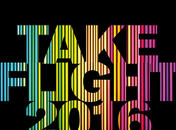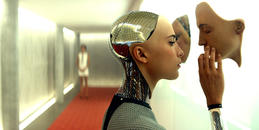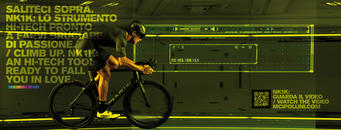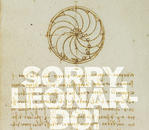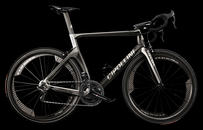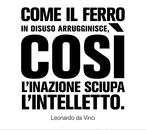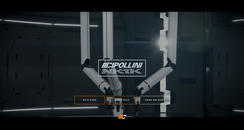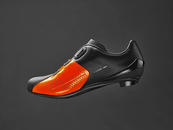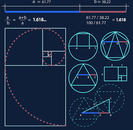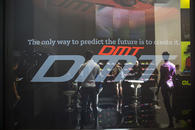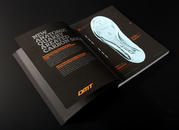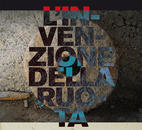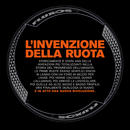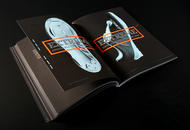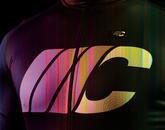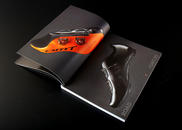As is often the case, we spent the summer holidays working: July and August are hot months for us, not only in terms of temperature, but by the amount of work we have that time of year due in part to the major exhibitions, concentrated between the end of August and the beginning of September. Among our most recent projects, it’s worth pointing out the product design of NK1K; the video Take Flight, dedicated to the promotion of international NK1K; Cipollini 2016 brand image; Cipollini 2016 clothing line; DMT product design; DMT 2016 brand image; the name, the concept, the image and the site-teaser of the new brand Fluxos.
Ex Machina
"Man is to technology what the bees are to the flowers: the sexual organ, a reproductive extracorporeal apparatus whose function is the evolution of the machines. Machines reciprocate by complying with his wishes and desires. At least until the technology will be enough in itself. Then the unnecessary human may be substituted once and for all.”
I watch our video Take Flight, created to promote NK1K, the new competition bicycle by Cipollini, and think back to this sentence by Marshall McLuhan from “The Gadget Lover: Narcissus as Narcosis.” McLuhan goes down hard, with his visionary zeal, foreshadowing a future where the machines will dominate man, and not the other way around. While it’s possible, but not probably that you are already living this future as a "dominated being," there is no doubt now that the vast majority of humans are conditioned by the powerful lure exerted by technology, with its continual technological innovations. Technology in its excess is able to "hypnotize in a state of narcissistic torpor" (McLuhan again). It seems that it’s the psychological condition ideal for the triumph of technique on humans.
In our video, it’s a human man (and not just any man but a super-man: Mario Cipollini) that monitors and controls the technology at will, using it to give substance to his ideas, to his Promethean wishes for challenge and freedom. It’s a metaphor for both simple and powerful that describes a lifestyle more than a brand (we like to imagine that brand of bicycles as a direct offshoot of the soul of the champion: gifted, strong-willed, perfectionist). So far the technology remains a valuable ally, with the express purpose of pushing the limits, to improve, to progress.
The video, however, has an element to it that I didn’t find convincing when I first heard it describes, but once I say it on the screen it made complete sense and even upset me, making me think back to McLuhans words again. I am talking about of the three robotic arms that create the bike frame. It almost seems that they can, at any moment, spin off on tangents, rebel commands, becoming autonomous builders of their own lives, becoming destructive, and not constructive, elements as often happens in science fiction movies. I thought back to another powerful statement, this time by Emanuele Severino: "Today, technique, the last god, recreates the world and has the ability to destroy him."
"On the one hand, as Promethean beings, we are proud of our ability to manipulate and dominate the world. On the other, we are afraid of what they may be, of the clutter and excess that we introduce in nature. We could call it the syndrome of Dr. Frankenstein." Here Roberto Escobar warns us while commenting on the film "Ex Machina" which is about the creation of a self-aware machine, with its desires and its own personality. With this in mind, I try to imagine the future of our children's children, and I rest with dismay. I wonder how man can handle the power of technology, this enormous opportunity to shape the world to fit their algorithms, without letting it slide out of his hands and become potentially destructive. It's the same Escobar who answers, simply saying that the difference will made by the purpose, that is if you use the technique for dominance, on the contrary, in the name of freedom.
In our video SuperMario dominates technology for his own purpose, which is to go faster, or better: to put to work in the best way all of his energy, his-watt power, without any waste, in best condition possible. What emerges from the video is his singular and obsessive perfectionism, this zeal in wanting to take advantage of any possibility of development. When I followed him as a fan, I clearly imagine these features, even this character, but it was only later when I got to know him personally that I realized how much this stubborn perfectionism and this sense of challenge are a part of his nature. I also realize how this tension for perfection and absolute quality is real and pressing, fully lived each day. How Promethean. (And here we must emphasize that in Western cultural history, Prometheus is a symbol of defiance to the authorities and to the impositions. He is also a metaphor of free thought and self, the archetype of a knowledge transferred from myth, falsification and ideology.)
In this sense the emphasis of the video it can be part of the school of symbols that "stays true to the intent of the true protagonist." It’s not, therefore, an effect free.
In our small way, I think we should be aware that the images we create are not only beautiful (or ugly) representations with the sole purpose of selling a product or service. They become "image bearers of justice." The way they are built, organized, contextualized and spread define a project of the world, of humanity, of interpersonal relationships. Each image consciously organized and distributed widely expresses an ethic. The effect, the symbol, then, will also be charged, but will always correspond to a consistent and credible idea of reality. I would feel uncomfortable to create fake, over the top messages because that would send a very bad message. It would seem as though my contribution lead to the collapse of the microscopic world. And I would not be relieved by the fact my contribution was "microscopic." Not to mention the consideration that “everyone does it.”
I reflected on conscience "ethics" in these terms more or less during the making of the video, and here I expose it. I am making it public. Maybe it will make people chuckle to talk of ethics in advertising and perhaps it will seem ridiculous to give so much importance to a commercial business, but this is precisely what I think of my job, whether it makes people laugh or not, whether it seems ridiculous or not.
08/09/2015 Filippo Maglione


